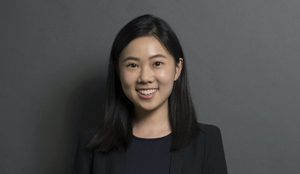Singapore: COVID-19 - Legally and Ethically Advertising Products During the Pandemic for Companies and Influencers
The impact of the COVID-19 pandemic has led to a significant rise in the demand for personal protective equipment like masks, and other medical products like hand sanitisers and disinfectant wipes. Many businesses have jumped onto the bandwagon to aggressively market their COVID-19-related products to consumers, particularly through social media and the Internet. Whilst consumers are generally perceptive and understand that an opportunistic streak does run through pandemic marketing, businesses should nonetheless steer clear of unfair practices and misleading claims.
This article outlines the important points on advertising products in Singapore, particularly COVID-19 related products during the pandemic.
Companies in the market for such products and social media influencers ("Influencers"), which have formed a key strategy in many company's marketing efforts, should ensure compliance with Singapore's advertising laws and various industry code set out below. This will reduce the risk of legal liability or negative publicity arising from non-compliance. In this article, Influencers and companies advertising their own products will be collectively referred to as "Marketers".
1. Laws on advertising
CPFTA
All advertisements in Singapore must comply with the Consumer Protection (Fair Trading) Act (Cap. 52A) ("CPFTA"), which is Singapore's main consumer protection law. The CPFTA will apply to both a company (when it advertises its own product) and an Influencer (when he/ she advertises a company's product).
The key prohibition is that a Marketer, in a consumer transaction, must not do anything (including advertise a product) in a way that will amount to an "unfair practice". An "unfair practice" includes acts where the Marketer:
- does or says anything, or omits to do or say anything, if as a result a consumer might reasonably be deceived or misled;
- makes a false claim; or
- performs any prohibited action listed in the Second Schedule of the CPFTA. This includes representations that goods have sponsorship, approval, performance characteristics, uses or benefits that they do not have; and representations that goods are of a particular standard, quality grade or style when they are not.
(Section 4 of the CPFTA)
A consumer has a direct right of action against a Marketer who engages in any of the "unfair practices" stated above. Depending on the court hearing the claim, the court may impose remedies such as: awarding damages to the consumer; ordering specific performance against the Marketer; or ordering the payment of money, property or other consideration furnished by the consumer (Section 6 and 7(4) of the CPFTA).
Companies marketing their products must ensure that their claims are not false or misleading, and can be substantiated by evidence. Likewise, Influencers who have been commissioned by companies to market COVID-19 related products should also verify the accuracy of the claims they make or are instructed to make. The CPFTA is wide enough to cover situations where a Marketer's actions or inactions would reasonably cause a consumer to be deceived or misled, and Marketers are advised not to make exaggerated claims in a way that consumers reasonably may be misled. This may include, for example, products touting to provide "100% protection" against viruses and germs.
Sector-specific advertising laws
On top of the CPFTA, advertisements in certain sectors are also regulated by sector-specific laws, which include prohibitions against false or misleading advertisements similar to the CPFTA. Examples of sector-specific laws include the Films Act (Cap. 107), which regulates advertising of films; and the Building Controls Act (Cap. 29), which controls outdoor advertising.
A Marketer may not be subject to sanctions from the Consumer and Competition Commission of Singapore (which administers the CPFTA), if it contravenes the CPFTA. However, if its advertisement contravenes the prohibitions in the sector specific laws, the relevant regulatory authority has powers to impose fines or imprisonment for non-compliance.
For example, advertisements of health products are regulated by the Health Products Act (Cap. 122D) ("HPA"). Under the HPA, a Marketer is not allowed to (a) advertise a product as a health product if it is not one, (b) advertise a registered health product in a way as to be usable for any purpose other than which it is has been registered, or (c) advertise any health product in a false or misleading way (section 19 and 20 of the HPA). Where a Marketer contravenes these prohibitions, the Health Sciences Authority ("HSA") has the power to impose a fine of up to S$20,000 or an imprisonment term of up to 12 months or both.
HSA recently issued warnings against sellers who claim that their products can prevent, diagnose or treat COVID-19[1]; - these include at-home COVID-19 test kits; health supplements or herbal remedies that can treat COVID-19; and sanitisers or disinfectant sprays that can "protect against coronavirus" or "stop coronavirus"[2] . HSA has clarified that there is currently no cure or treatment for COVID-19, diagnosis can only be done in laboratories and sanitisers or disinfectant spray may not necessarily eliminate all germs. Consequently, all such claims are false and misleading. It is therefore important that Marketers ensure that their advertisements do not convey that use of the product can help treat or prevent COVID-19, and it is best to avoid references to efficacy against COVID-19.
2. Industry codes on advertising
Marketers should also comply with the industry-regulated advertising codes set out by the Advertising Standards Authority of Singapore ("ASAS"), which is the self-regulatory body of the advertising industry. This includes the Singapore Code of Advertising Practice ("SCAP"), which applies to all advertisements in Singapore, and the Guidelines for Interactive Marketing Communication & Social Media ("Social Media Guidelines"), which apply to social media advertisements.
SCAP
According to the SCAP and amongst a list of other guidelines, advertisements:
- should not contain anything illegal;
- should be honest;
- should not mislead in any way by inaccuracy, ambiguity exaggeration, omission or otherwise; and
- should not without justifiable reason play on fear
On top of ensuring their product claims are not false, Marketers should not excessively capitalise on the public fear to market their COVID-19 related products. An example of this may include painting a grim and dire portrayal of the public health crisis and highlighting the death toll of the COVID-19 pandemic, before then marketing their face mask or hand sanitiser.
The SCAP is administered by the ASAS, which can impose sanctions like withholding advertising space or time from advertisers and withdrawing trading privileges from advertising agencies. If alerted to advertisements that are potentially false and misleading, the ASAS may require the Marketer to prove its claims and take down its advertisements. An example of an advertising claim that was subject to ASAS's investigations during this pandemic period is a clip-on badge touted to provide wearers with a 1-metre protection radius from diseases and germs[3] . The ASAS may also publish details of the outcomes of investigations it undertakes, which may create adverse publicity for Marketers.
Social Media Guidelines
As an extension to the SCAP, the Social Media Guidelines pertain to advertising and marketing communications using social media. Some key principles from the Social Media Guidelines include: all marketing communication must be identified as such and distinguished from editorial or personal opinions; disclosures in marketing communication should be simple and straightforward; and marketers must not boost their user engagement or social media channel through fraudulent means (eg. purchase of bulk "likes").
According to the Social Media Guidelines, some situations where disclosure is required include: where the company sponsors the content space in return for a mention by the Influencer; where the company solicits a review by providing a product of service at its own expense; and where the Influencer's content features or mentions a sponsored product.
Conclusion
With the COVID-19 virus looking set to plague the world for still some time, consumer protection laws and industry guidelines play an important role in ensuring that Marketers do not unnecessarily exploit the public and prejudice consumers. It is important for Marketers to understand the legal and ethical landscape in Singapore's advertising scene, and comply with the relevant rules and industry guidelines.This article is produced by our Singapore office, Bird & Bird ATMD LLP, and does not constitute legal advice. It is intended to provide general information only. Please note that the information in this article is accurate as at 26 May 2020. We will continue to monitor the situation and provide updates on any changes as soon as these are communicated to us. Please contact our lawyers if you have any specific queries.
[1] https://www.hsa.gov.sg/consumer-safety/articles/advisory-on-products-claiming-to-prevent-or-treat-covid-19-(coronavirus-disease-2019)
[2] https://www.todayonline.com/singapore/more-1700-products-making-false-claims-about-covid-19-removed-1600-sellers-warned-hsa
[3] https://mothership.sg/2020/04/products-prevent-covid-19-warning/




